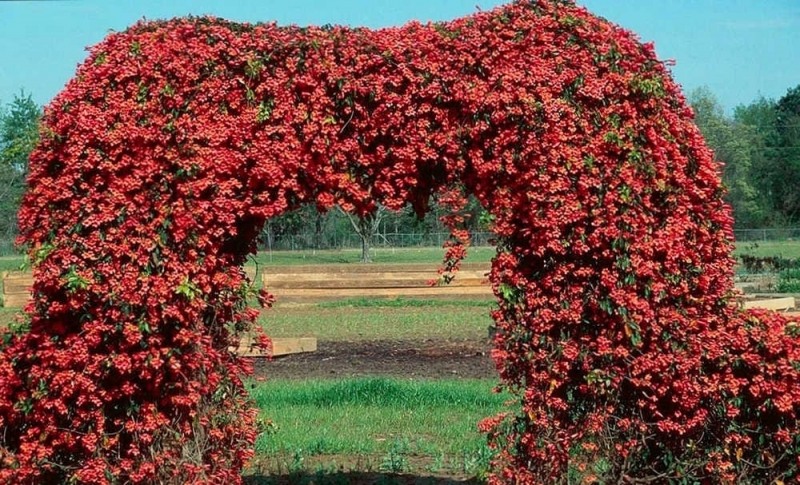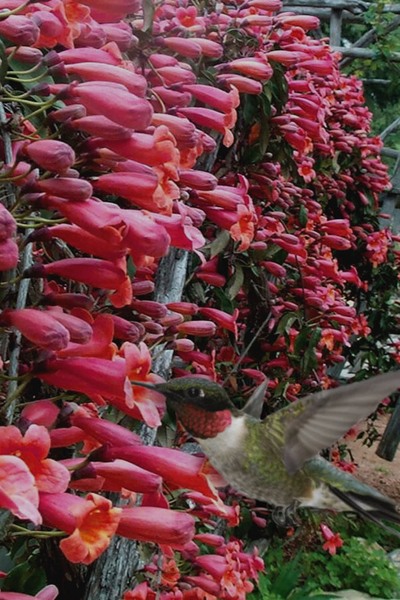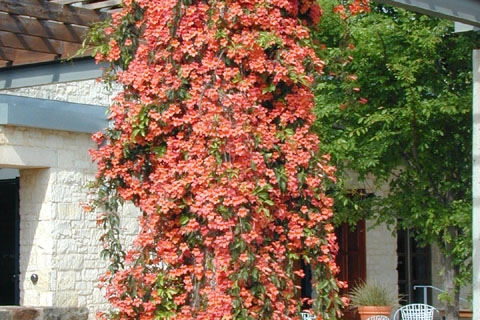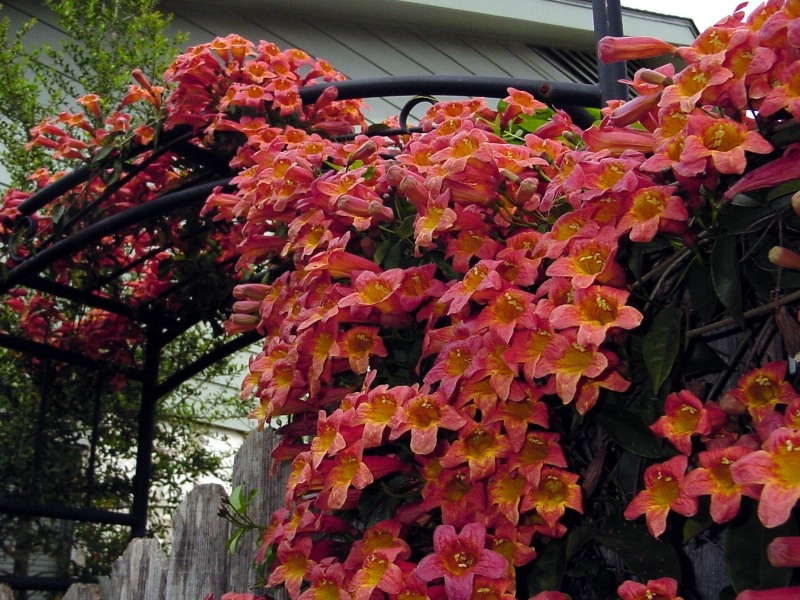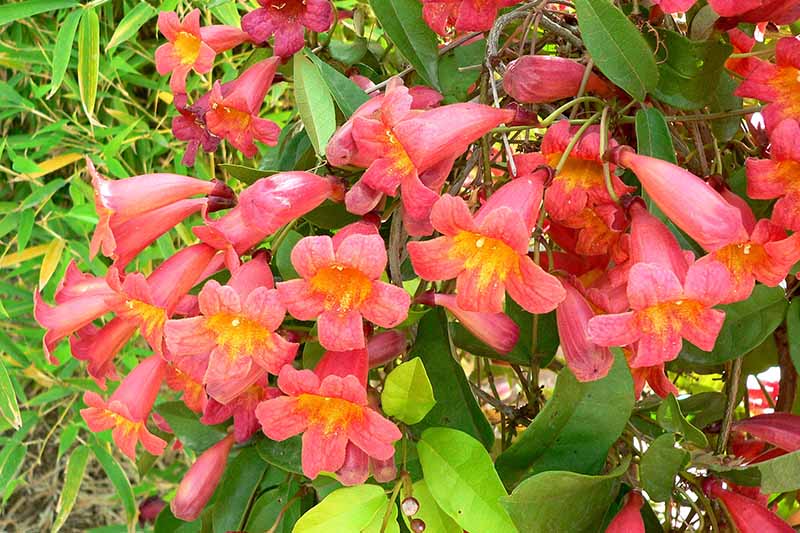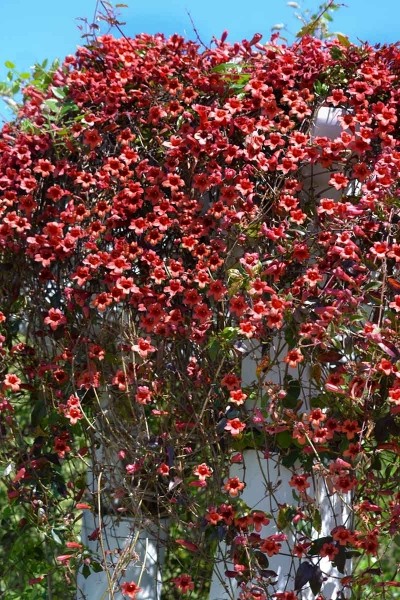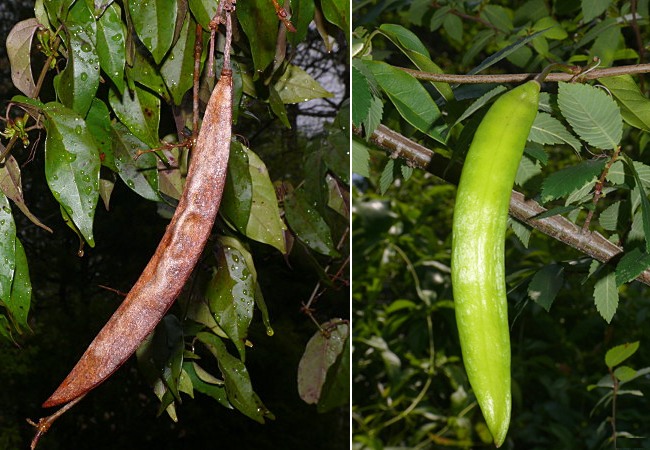Shalimar Red Crossvine
| crossvine |
It is a perennial, fragrant, flowering vine, see how the Shalimar red crossvine looks like in the garden and landscape.
Shalimar Red Crossvine is suitable for growing in USDA hardiness zones: 6a, 6b, 7a, 7b, 8a, 8b, 9a, 9b. Other winter zone scales for planting this crossvine are ANBG: 1, 2, 3; RHS: H7, H6, H5, H4, H3; PHZ: 7a, 7b, 8a, 8b, 9a.
Crossvine details
| Plant type | vine, flowering, fragrant | ||||||||
| Life cycle | perennial | ||||||||
| Sun needs | part shade, full sun, part sun | ||||||||
| Growth habit | upright, climbing, trailing, cascading, twining, spreading | ||||||||
| Flowering period | spring, late summer, fall | ||||||||
| Height at maturity | 3 m | ||||||||
| Spread | 1 m | ||||||||
| Spacing | 90 sm - 2 m apart to cover fences | ||||||||
| Soil type | loamy, sandy, clay, silty | ||||||||
| Soil moist/drainage | moderately drained, poorly drained, well drained | ||||||||
| Soil PH | 6.5 - 8.0 (neutral - moderately alkaline) | ||||||||
| Water needs | average, low when established | ||||||||
| Maintenance / care | low | ||||||||
| Resistance to | deer, drought, heat, humidity | ||||||||
| Gardens types | xeriscape | ||||||||
Winter hardiness zones:
| |||||||||
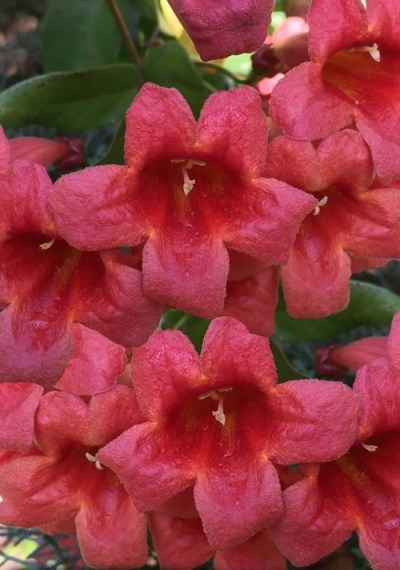 Shalimar Red crossvine is breed from Bignonia capreolata cross-vine, native to the central and southern United States. The vine climbs without twining but does produce tendrils and it produces long tubular flowers which are red and yellow and frequently have a mocha fragrance. The hummingbirds and butterflies will thank you for planting this vine.
Shalimar Red crossvine is breed from Bignonia capreolata cross-vine, native to the central and southern United States. The vine climbs without twining but does produce tendrils and it produces long tubular flowers which are red and yellow and frequently have a mocha fragrance. The hummingbirds and butterflies will thank you for planting this vine.
Native Americans appreciated the plant for its reputed medicinal value. They used the bark, leaves and roots to treat ailments including diphtheria, rheumatism, edema and headaches. The crossvine gets its name from the cross-shaped pith that can be seen when its squarish stem is cut in two.
The Bignonia capreolata Shalimar Red often climbs very high, with leaves only remaining on the uppermost portion of the plant. Crossvine can spread aggressively through stolons and may need to be managed in garden or domestic settings.
An exceptionally easy-to-grow and fast-growing Shalimar Red Crossvine quickly covers fences from top to bottom, arbors and other structures, and produces loads of fragrant, trumpet-shaped deep red flowers in spring reblooming in summer and fall.
Rather than grow along just the top of a fence, the vines cascade all the way down to the ground to entirely cover the fence. Also ideal for use to cover a trellis, arch, arbor, pergola or any other structure that will support the vine.
The Shalimar Red Crossvine is exceptionally easy to grow in most any average, moist but well-drained soil of average to low fertility. Plants are quite drought tolerant when established so it's a fine addition to the Xeriscape (low water needs) gardens.
Pruning isn't necessary, however the Bignonia capreolata Shalimar Red vines can be pruned after flowering to keep tidy.
Shalimar Red Crossvine @ wikipedia.
